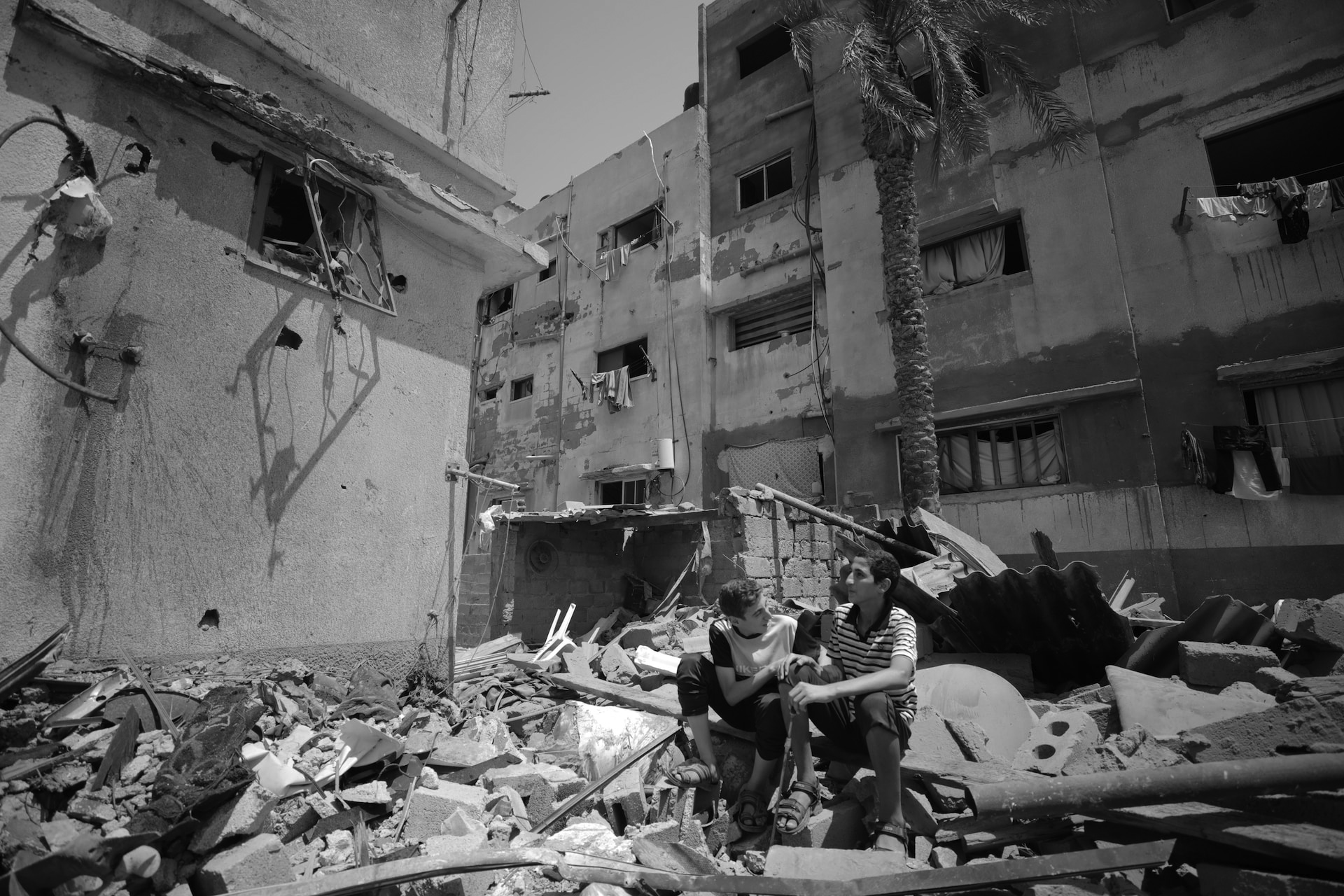Re-Designing Peace / Re-Imagining the Political
Faculty of Arts, University J. E. Purkyne
Usti nad Labem, Czech republic, EU
Room A 313
The notion of a Right to go to war, cannot be properly conceived as an element in the Right of Nations. […] If such a Right be conceivable at all it would amount, in fact, to this: that in the case of men who are so disposed it is quite right for them to destroy and devour each other, and thus to find Perpetual Peace only in the wide grave. (Kant, Perpetual Peace, 1795) A philosophy of the future should be, in part, a species of science fiction. (Deleuze, Difference and Repetition).
The notion of a Right to go to war, cannot be properly conceived as an element in the Right of Nations. […] If such a Right be conceivable at all it would amount, in fact, to this: that in the case of men who are so disposed it is quite right for them to destroy and devour each other, and thus to find Perpetual Peace only in the wide grave. (Kant, Perpetual Peace, 1795) A philosophy of the future should be, in part, a species of science fiction. (Deleuze, Difference and Repetition).
Proposed Format for the first PPP Conference in Usti: Re-Designing Peace / Re-Imagining the Political
Plenary Forum (Michaela Fiserova, organizer): Re-Designing the Conditions of Universal Hospitality: Who is the Enemy? Speakers TBD.
Kant’s concept of perpetual peace introduces his utopian vision of permanent universal hospitality. Such understanding of peace does not describe any real human behavior but formulates its transcendentally conditioned moral maxim. Kantian peace is an imaginary peace-to-come, a promise of a possible improvement of human coexistence in universal openness to otherness. As a promise, peace does not actually exist anywhere and cannot be simply implemented in the real world. As a moral maxim, it cannot be totally present in human behavior. However, precisely because of its expected potential presence, it is necessary opting for peace, tending to it, searching for it. Any declaration of total presence of peace on Earth would be totalitarian as it would abandon the promise to improve human sense of hospitality. If any government makes Kantian utopia of peace “come true”, it risks stopping the promised perpetual evolution towards universal care and acceptance. By systematically construing an “enemy” related to the particular imposed version of peace, it would head towards a totalitarian “nightmare”. The plenary forum will challenge this metaphysical risk incorporated in promises of perpetual peace – of projecting an “enemy”. Any attempt to design peace should, therefore, providently include a reflection of this risk.
Partner Workshops: Since the university is purportedly an “international institution,” with one of the only remaining international classes of labor that is represented by the faculty and the students, we propose to create different working groups composed of faculty and students in Central and Eastern Europe, charged with redesigning the conditions of perpetual peace by employing Kant’s original articles for perpetual peace as critical design problems. Each institutional working group can take one of the preliminary or definitive articles from Kant’s Towards Perpetual Peace (1795) as a design problem to present in the Usti conference workshop sessions. At the end of the conference, one of these design problems will be adopted as the plenary topic of the next PPP conference.
No conclusion of Peace shall be held to be valid as such, when it has been made with the secret reservation of the material for a future War.
- No State having an existence by itself-whether it be small or large-shall be acquirable by another State through inheritance, exchange, purchase or donation.
- Standing Armies shall be entirely abolished in the course of time.
- No National Debts shall be contracted in connection with the external affairs of the State.
- No State shall intermeddle by force with the Constitution or Government of another State.
- No State at war with another shall adopt such modes of hostility as would necessarily render mutual confidence impossible in a future Peace.
- Finally, possible topics can also be created from the original definitive articles and appendices that serve as guarantees of perpetual peace according to an 18th century imagination that need to be re-imagined (i.e., re-designed) today: the cosmopolitical constitution of free states (foedus pacificum), the resolution of the perpetual conflict between politics and morality, the guarantee of “Universal Hospitality,” the question of Providence in “Natural Design,” or; “the transcendental conditions of public right.”
See Special Edition from Phase One of the Perpetual Peace Project (2024) Link to PDF
Events Program
Day 1: Thursday, November 9, 2023
Day 2: Friday, November 10, 2023
9:30 – 19:00
The full program as a PDF is here
Day 1:
9:30 Opening
9:45-10:00 PLENARY FORUM
Re-Designing the Conditions of Universal Hospitality: Who is the Enemy?
10:00-11:00 KEYNOTE LECTURE 1
– Michaela Fišerová (University J.E. Purkyně, Czech republic)
The Aporetical Promise of Peace
11:00-11:10 Coffee break
11:10-11:20 WORKSHOPS
Re-Imagining the Political
WORKSHOP Session 1 – leader Martin Šimsa
Moving Away from Kant´s Perpetual Peace?
11:20-11:50 David Peroutka (University J.E. Purkyně and Charles University, Czech republic)
The defensive nature of just war
11:50-12:20 Sandra Zákutná (Prešov university, Slovakia)
The Role of Education in Kant’s Project of Perpetual Peace
12:20-12:30 coffee break
12:30-13:00 Peter Kyslan (Prešov university, Slovakia)
Kant’s hospitality from today’s perspective
13:00-13:30 Martin Šimsa (University J.E. Purkyně, Czch republic)
Perpetual Democratic Peace?
13:30-15:00 Lunch
WORKSHOP Session 2 – leader Cristina Vendra
Peace as a Powerful Paradox
15:00-15:30 Cristina Maria Vendra (University J.E. Purkyně, Czech republic)
Enlarging the Scope of Peace: the Embodied Struggle for Survival as a Path for a Peaceful Eco-Hospitality
15:30-16:00 Dominik Klucsár (Slovak Academy of Sciences, Slovakia)
Perpetual Tension: Rebellion and its Limits
16:00-16:15 Coffee break
16:15-16:45 Jaroslava Vydrová (Slovak Academy of Sciences, Slovakia)
Refracted life of a human being. The situation of the refugee
16:45-17:15 Peter Šajda (Slovak Academy of Sciences, Slovakia)
Working for Peace during Conflict: Political and Existential Ways of Limiting Enmity
17:15-17:30 Coffee break
17:30 – 18:30 SPECIAL GUEST LECTURE Alex Taek-Gwang Lee (Kyung Hee University, Seoul, South Korea)
Revisiting the D.M.Z.
19:00 Dinner
Day 2:
9:30-10:30 SPECIAL GUEST LECTURE Jiří Chotaš (Czech Academy of Sciences, Czech Republic) Kant and Hegel on War and Peace
10:30-10:40 Coffee break
10:40-11:40 KEYNOTE LECTURE 2 – Krzysztof Skonieczny (University of Warsaw, Poland)
War, Peace and “Human Nature.” Remarks on a Limit of Political Imagination
11:40-11:50 Coffee break
WORKSHOP Session 3 – leader Petr Kouba (Czech Academy of Sciences, Czech Republic)
Lacking Conditions for Peace
11:50-12:20 Iwona Janicka (Aarhus University, Denmark)
Coarticulations: Towards a Politics of Cohabitation
12:20-12:50 Petr Agha (Charles University, Czech Republic)
The European Union at Crossroads: The Ukraine Conflict, Technocracy, and National States
12:50-13:00 Coffee break
13:00-13:30 Jan Bierhanzl (Czech Academy of Sciences, Czech Republic)
Nonviolence and the Possibilities of a New Political Imaginary in Wartime
13:30-14:00 Vít Pokorný (University J.E. Purkyně, Czech republic)
Cosmopolitanism and Globalization – Appadurai’s Perspective on Cosmopolitanism
14:00-15:30 Lunch
WORKSHOP Session 4 – leader Adam Nocek
Notes from the Field: On Designing Perpetual Peace Pedagogy
15:30-17:00 Adam Nocek (Arizona State University, USA) and Gabriela Baka (Owls Department, Poland)
17:00-17:15 Coffee break
17:15-18:15 KEYNOTE LECTURE 3 – Gregg Lambert (Syracuse University, USA, co-founder of the Perpetual Peace Project)
“Who is the Real Enemy?”
18:15-18:30 Coffee break
18:30-19:00 Round table on Perpetual Peace Project, plans for future collaboration
19:00 Closing
The full program as a PDF is here




